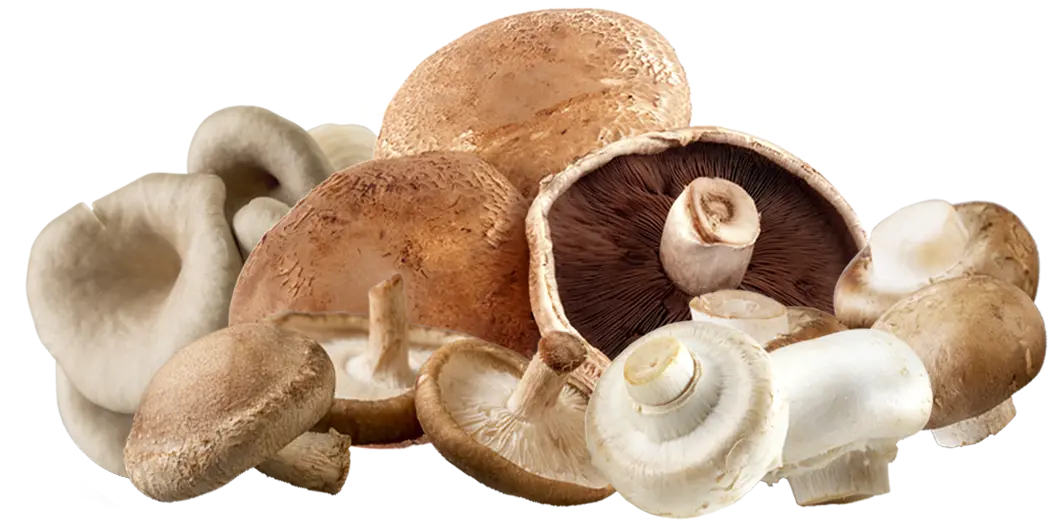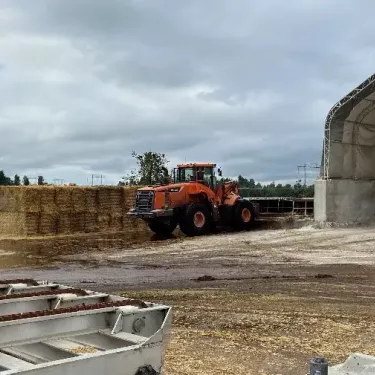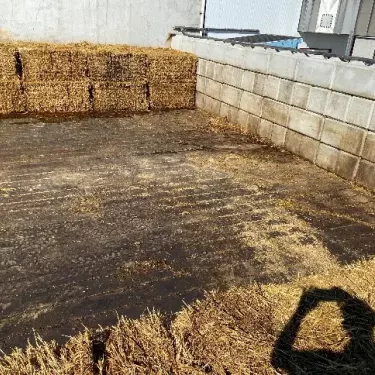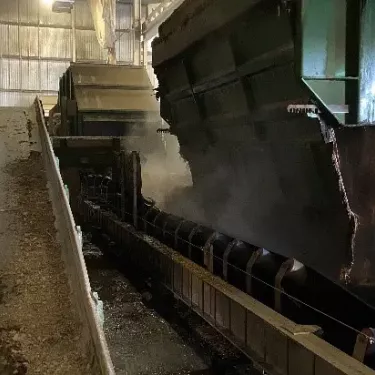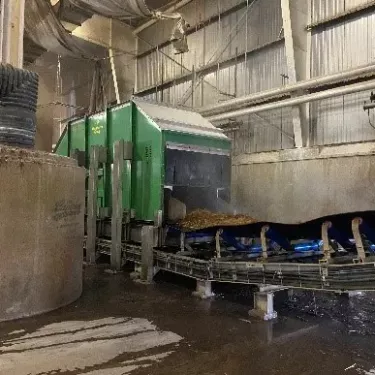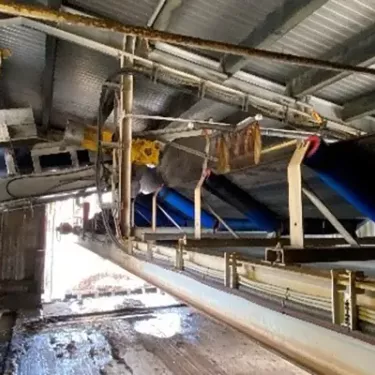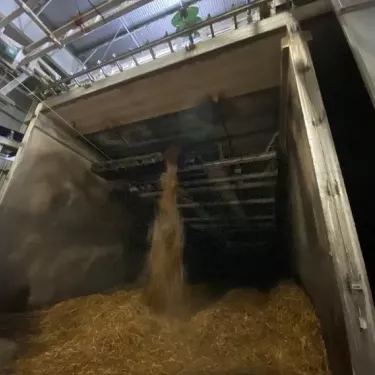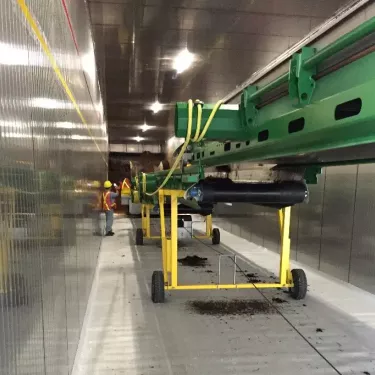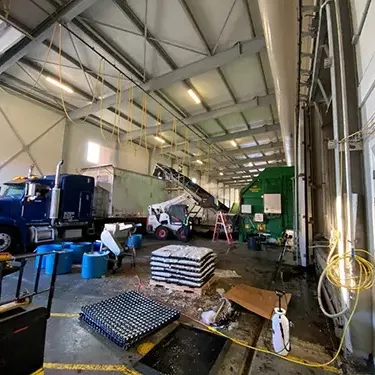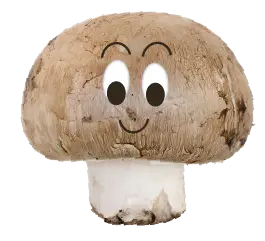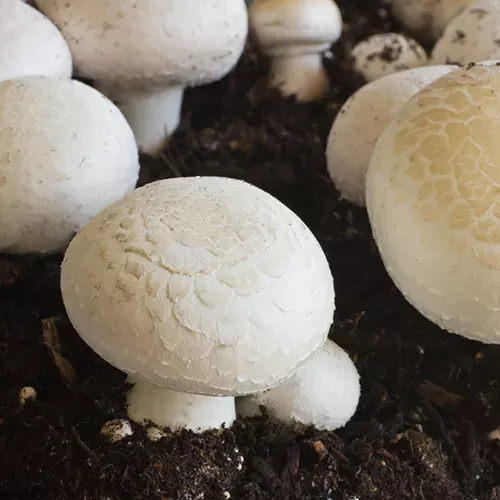
Mushrooms: A Sustainable Choice
Mushrooms are a more sustainable option than other produced foods. Here's why:
- Take a Fraction of the Water Other Foods Require
Mushrooms use a fraction of the water many other foods require (only 1.8 gallons of water per 1lb of mushrooms)
- Utilizes Composted Materials
Composted materials are utilized to create the growing medium the mushrooms are cultivated on.
- Take Up Less Space
Mushrooms typically take up less space to grow as the growing beds are stacked vertically in the growing facilities.
- Limited Electricity Usage
It only takes 1KWH of electricity to produce 1lb of mushrooms
Farmers Fresh Sustainability Practices
Here at Farmers Fresh we work towards being as sustainable as possible and have implemented the following strategies into our practice:
- Re-Use & Re-Purpose
We utilize items that other farms don't need or may not be utilizing. Our compost base is wheat straw which is the animal bedding and by-product of wheat production and we mix in dried poultry waste from other local farmers. Even the compost utilized for our mushrooms to grow on is not wasted. The spent mushroom compost is then sent to a facility to be utilized in landscaping and gardening
- Water Conservation
All water utilized in our composting facility is kept in a closed system. This way we do not let any leachate into the ecosystem. We collect all the storm water and store it for when we need fresh water in the compost. We even utilize old mushrooms steams (which are mostly made of water) to re-hydrate the straw.
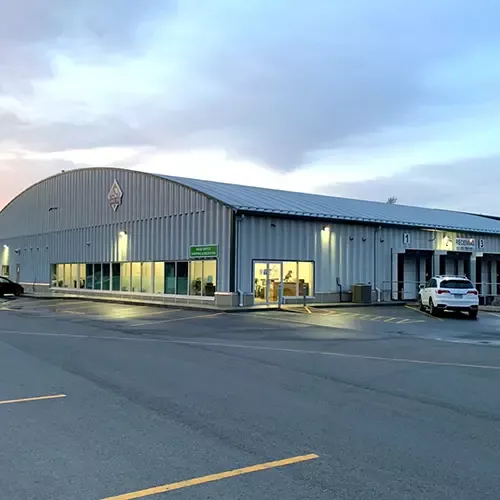
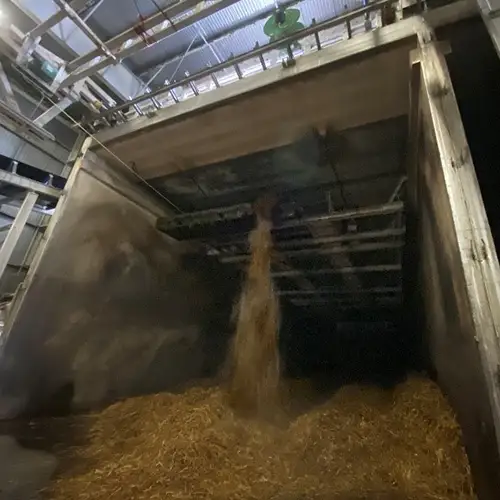
Integrated Recycling
Farmers Fresh has taken several steps to reduce the impact its growing and production processes have on the environment. The mushroom growing process itself is naturally a very closed-loop system and complements additional sustainability efforts. Inputs to the composting process are all recycled materials while the outputs are mushrooms, spent compost, and water. The mushrooms are sold and the ones unfit for production are recycled back into the composting process. However, this is not limited to organic wastes.
Recycling is one of the most fundamental practices a business can exercise in order to reduce its environmental footprint. It’s also one of the most visible and cost effective, which makes it a great initiative for fostering a sustainability oriented company culture.
Farmers Fresh has long recycled corrugated cardboard in its warehouse, but the program was limited due to a lack of commercial recycling services in the area.
Mushroom Compost
At Farmers Fresh we take every step of the growing process seriously and that begins with making the compost used to grow our mushrooms. Our compost is made indoors using state-of-the-art technology from the Netherlands to ensure the best quality and minimal odour, while also achieving the highest environmental standards.
View our composting process below:
No Pesticides Used in Our Compost!
Because we pasteurize our compost to high temperatures we do not use pesticides in our composting facility.
Find out more about our commitment to safety and quality assurance.
